Email to the Buffalo
10/19/2008 Sunday 12:17 PM Bersone:
Buffalo
Thanks for the call of concern yesterday. The stock market fall is a wonderful event, of course, and it has lowered my stock value by about twenty-five thousand, although it has given me the opportunity to bu
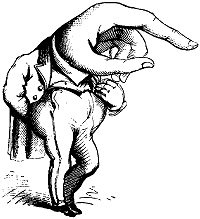 y a few things at low prices. I considered selling off all my losses to write them off to offset my capital gains tax which will be considerable because of the sale of my five acres, and buying back in, after the required thirty day delay, but I never did so -- partly because of my important work on the endocrine show or the innovative learning show or various other wheels of commerce to which I have diligently leaned "my queer shoulder into", as Ginsberg has said, but partly because I felt that the naked emotional hysteria in the stock market had reached a point that I only wanted to watch it, rather than participate in it. I have also tried to understand it.
y a few things at low prices. I considered selling off all my losses to write them off to offset my capital gains tax which will be considerable because of the sale of my five acres, and buying back in, after the required thirty day delay, but I never did so -- partly because of my important work on the endocrine show or the innovative learning show or various other wheels of commerce to which I have diligently leaned "my queer shoulder into", as Ginsberg has said, but partly because I felt that the naked emotional hysteria in the stock market had reached a point that I only wanted to watch it, rather than participate in it. I have also tried to understand it.Economics is a marvelous field, equal almost to poetry in that no one really knows what it is. We do know that it is somehow the study of movement of some sort, the movement of value, which depends on agreement between people about something, in this case, money, the value of which has become unknown, due to derivatives and other imaginary concoctions so complicated they aren't even understood by those who created them and certainly not by those who sell them. As nearly as I can figure out, this particular confusion began in 1971 by our then beloved president, Richard Nixon, when he signed the Breton-Woods Accord that disengaged the dollar from gold, allowing it to float freely on the world markets. To "float freely" may be metaphor enough to imply what the dollar is: "Shit floats" is a phrase that comes to mind. In any event, the United States at that time was suffering a liquidity problem, which means that it was broke, because of ten years of the Vietnam war. The smart move then, since the dollar was pegged to gold at thirty-five dollars an ounce, was to get into gold which eventually went to 800 an ounce, slightly lower than where it is at the moment. That agreement bought us about thirty years of illusion that the dollar was worth something, no one really knowing what. We had the surplus of the Clinton years, created by the taking away of vast sums from the military, which drove people such as Cheney crazy, his world-view based on fear and a predilection for order stemming from violence. A sort of bully attitude. So, a war was in order, which we've had, what, five or six years of now, and find ourselves in the same lack of liquidity situation.
But something happened during the intervening thirty or forty years since Breton-Woods: namely, Globalization. Not only has this process been working on behalf of the very rich, who have worked through the World Bank to achieve their ends, but it has also brought together militant Muslims who eventually became Al-Qaeda. It was the U.S. who brought them together in the Philippines in an effort to create a fighting force of "freedom fighters", to use Reagan's phrase, to be used in Afghanistan against the Soviets. Apparently they began talking and realized that all their problems led back to the U.S., a realization they had never had before because they had been separated and hadn't achieved this world-view. Globalization made interdependence of all people and nations visible, to both pro- western and anti-western people alike. Another thing that happened was the collapse of soviet Russia, which made it look like America and laissez-faire capitalism had triumphed, a perspective that gave Globalization its imprimatur.
But, as I say, Globalization, that is, a level of awareness dawning in the minds of most people around the world, is not just a concept benefiting western capitalistic interests. It is a real event that even those interests didn't realize, which explains why nobody saw this banking debacle coming. The interconnectedness of people agreeing on the value of the dollar throughout the world had dire consequences. If one market was hurt, it hurt another. No one was left out, or, as Henry Miller observed, "Everybody gets fucked." The soviets, who were counted out, after enduring an economic depression in Russia during the nineties equal to the one we went through during the thirties, suddenly found itself awash in cash due to its oil reserves and the doubling of the price of a barrel of oil. And the fact that more dollars have been printed than could possibly equal the gross national product of all industrialized nations put together for many years to come, rendering it useless, puts us on shaky ground, as well as anybody else who depended on it having any value.
Nobody knows what anything's worth anymore, especially the dollar. We're almost back to coming up with seashells again. Even oil, which was what, $150 a barrel is now back down to $70. One thing is certain: the safeguards established during the thirties are obsolete because of the interdependencies of global markets, and that Scale, the studies of which are what the recent recipient of the Nobel Prize in economics were about, is the difference between our depression in the thirties and now: So anybody who has any money, South Korea yesterday, for example, is pouring money into banks to try to protect Stability, without which we descend in anarchy, which despite my predilection for it, is murderous. History has proven, Napoleon would be a good example, that people opt for tyranny over anarchy any day. So freedom and democracy are in a precarious state. The answer, of course, is for people to trust each other, and let the flow of goods, services and ideas flow. The big banks don't trust the little banks enough to lend them anything to keep things going. And keeping things going is above all the requisite for survival. Except that what often needs to be kept going, such as cars, are a threat to survival of the life. We have been fucking each other so long we're like a tangle of earthworms to the point that we don't know what end or whose end we are sucking and, like an earth worm, if you cut it in half you don't know which end is alive. The crows may feast, soon.
But I am a man of faith. Man's illimitable capacity for illusion may save us, for what I'm not sure. If we can agree on some universal illusion of value, land probably being the most real, food a close second, warmth in there somewhere, sex, actual or imagined, quite helpful, love, of course being the best, but we must have something real to agree on as having value, something like a seashell or, The Bank! Whether or not we will achieve this agreement without further bloodshed, who can tell. It depends on our courage to change and imagine. And what is the difference between illusion and delusion, between Sarah Palin and, say, Groucho Marx? The function of the artist, the person of imagination, during these times, is to create like a madman and, above all, to follow his most irrelevant inklings, not presuming to know any answers except what turns him or her on! As my old friend Andre Codrescue said, "Workers of the world -- disperse!"
I do realize, of course, that you're concerned about my personal situation, and there is a negative effect to these economic events on my life, such as house value and stock market losses, and they are requiring me to work more than I should; but be mindful that I have been steadily producing poems throughout the year, not earth-shaking but nevertheless satisfying, and remain hopeful that I will produce them in some tangible form soon. I had an appreciative email from Steve Schutzman recently, concerning recent poems, as well as a nudge to enter some contest he felt I should win. I do need to get shit in the wind. But looking backward, over the past two years, I have written, married, maintained houses, sustained friendships, thought and breathed as I was showered in sunlight as I walked down the street and so held my being a bit longer than might otherwise been expected.
Thanks for calling. Yo bro in love and guts, Eujenio
10/19/2008 Sunday 9:03 PM Buff:
Marvelous piece!
I enjoy the way you relate historical events! Historians are so wrapped up in idiomatic language that I no longer understand the words, the idiom, or the gist of so called "expert testimony". You, however, teach the histories as a poet, making it easy and joyful to follow the drift.
I have long known that money has no intrinsic value and that the pegged value of the moment is a living fantasy not unlike those found at Disney World, or the Vatican. You and I worked at The Bank pushing millions of dollars of bank notes and checks from one side of the building to the other, carefully reconciling its value throughout the process. That was one of the biggest banks in the world and you and I were actually bringing it to balance every night around eleven-thirty PM, just before trudging over to The Bit of Paradise for steak and eggs, a shot and a beer, or two or ten. How can anyone take such a system seriously? They said that when the market recently took its first dive, a hundred billion dollars, or so, just vanished into thin air over night. Pretty tricky! Anyone who would invest their financial future in this sort of whimsy might have more guts than brains, present company excluded of course. This is the NFL of Finance, recreation at its highest league level. A game of chance. It’s a game we take so very seriously because it provides us with the illusion of balance and control, with which we are quite familiar. The only alternative we can imagine is a drift toward the counter-illusion of chaos, about which we know very little, and "the devil you know is better than the devil you don't know", so I have heard. Fear is the base energizer in all of this, and as we each know but don’t have the guts to truly accept, fear always and only evokes more fear.
I'm pulling for a complete collapse of all the markets, ours first. You're right that we would probably choose tyranny over anarchy, but I'd just love to see us take an honest shot at it for once and perhaps try another system of values such as love, as you suggest, or even just a little self-respect. Sea shells work for me. The truth is that as a society we have lost touch with the hard-on in our heart and have become caricatures of ourselves, of actual human beings. I saw a TV commercial the other day that bragged of using "actual people" in the ad. I wouldn't have noticed if they hadn't mentioned it.
I am sorry that your financial balance has become unsettled, but only because you are working the job longer and harder than you would otherwise. Fuck the money. It’s nothing to lose sleep over. WE WILL EAT! And we have our friends and families. We have the sweetness of sea or mountain air and the song of the river to remind us of our true core values. So the market value of our homes have "depreciated" (not in my mind!), so what! I don't give a shit, I ain't movin' out!
You HAVE accomplished a lot in the last couple of years! As far as the writing goes, a whole sheaf of poems have emerged. The real work never stops, and how ever much of it gets finally translated into our chosen media of expression is not really the point. The work is the point, and for you that is an ever ongoing process. It's the labor that I detest, other people's work, and I hate to think of you doing it. Yet, if you couldn't handle it you wouldn't be doing it, so who am I to poke my nose in. For myself, I am doing less and less labor and I suppose that's progress. It's a strange transition though for me. I'm not unlike the prisoner who after forty years in a cell suddenly finds the door left open and unguarded, yet fearful of leaving, hesitating before taking the first step outside into the free world. As I drift through these final years I find that I know less and less about th
 e social world and a little more about life.
e social world and a little more about life.I'm starting to understand why old people sit and rock and look. There's not much more that really needs be done. There is a time when the river finally becomes our destiny, our chosen reward or final resting place - I mean, place to rest and wait and to maybe understand without knowing or even having to know. Certainly I trust aboriginal man over modern man and I’ll never fear aboriginal anarchy, so if the fantasy of modern social values somehow gets reworked or destroyed, so be it, mox nix. It'll be fun to watch, more fun than a barrel of monkeys or a political circus or even a 49er/Ram game. When it comes to the social world, I'm pretty much a season-ticket holding spectator. I'll root for the under-dog and glory in the accomplishment of others. I'll wear my game face and follow the stats as the endless financial season unfolds. I think I know when to hoot, and when to toot. But I will never ever take it seriously.
Go Niners!
Buff






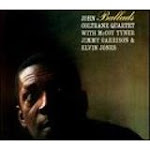
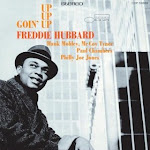
















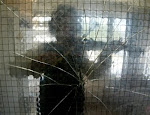











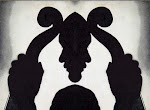

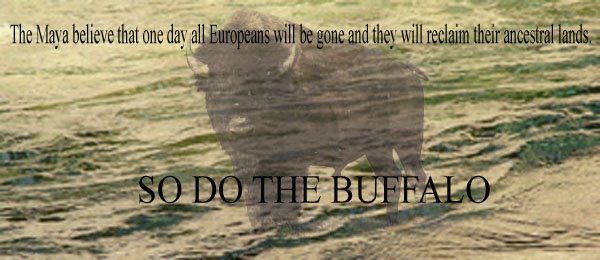
1 comment:
The real currency, many people will say, is energy. Actually, the real currency is food, which is pretty much the same thing. (And now, with Ethanol, they are the same.) The value of food, of good nutrition, is something that is fundamental. Much more fundamental than even gold. Of course, food is the result of one kind of energy, over which we have little control, namely photosynthesis.
In the US we dislike any lack of complete control, so have mega-industrial "farms" which are really no more than chemical companies run on oil. Yes, some nutrition is produced, but that is not really their purpose. Their purpose is power, no different from the robber barons of the late 19th century, only their goals are mightier. Instead of cornering only markets within the US, they are fixated on cornering markets around the world.
If we have any hope for so called energy independence, or a way out of this financial shell game, we have to get back to producing local food for local consumption and give up on repressing those "third world" countries by flooding the markets with cheap, poor nutrition such as corn and soy. The irony is, we so disdain these countries for producing terrorists, who are really only people who are attempting to reassert control over their own communities, that we wage war with them, thus compounding the problem.
Globalization in and of itself is not the cause of our financial system's instability, of terrorism. Greed is. For example, the new Petraeus plan that has been producing results in Iraq is based on the premise that to maintain order and stability in a region, we must provide fundamental goods and services to the people in that region. That we must make them trust us more than they fear their current captors. What a novel idea! What, you mean bombs and guns don't actually bring about stability? You mean generosity, not aggression is the answer? Unfortunately, we refuse to go all the way with this approach. We come at it half heartedly, with little intention to actually help these people become self reliant. (If we did, we couldn't profit from their instability.)
When will the politicians get it that this premise must be applied on a global scale? Again, fear and ignorance on the part of every day American voters is responsible for allowing these greedy practices to paint us in to this corner. Hope lies in the fact that there is only one way out: replacing greed with generosity, love with fear, peace with war. The question is, will we realize it before it is too late?
Obama08
Post a Comment